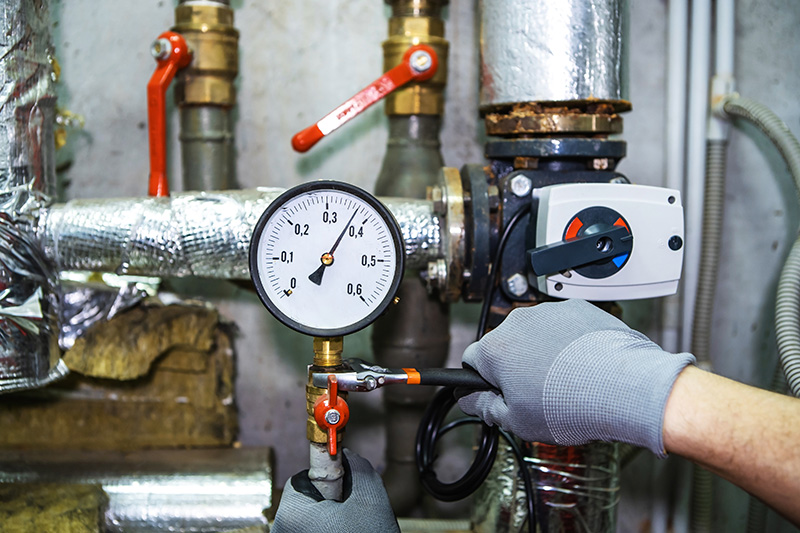Top Approaches for Resolving Low Water Pressure in Your Home
Top Approaches for Resolving Low Water Pressure in Your Home
Blog Article
What are your thoughts about 9 Reasons for Low Water Pressure in Your House?

Low tide stress in your house can be a discouraging problem, influencing every little thing from showering to washing dishes. If you're experiencing weak water circulation, there are a number of feasible reasons and options to check out. In this guide, we'll review typical reasons for low tide pressure and practical actions to deal with the issue successfully.
Intro to Low Tide Stress
Low tide pressure happens when the flow of water from your faucets, showers, and various other fixtures is weaker than normal. This can make day-to-day jobs much more difficult and much less efficient. Recognizing the causes of low water stress is vital to finding the appropriate remedy.
Typical Root Causes Of Low Water Pressure
Faulty Pressure Regulatory Authorities
Stress regulatory authorities are responsible for keeping constant water stress in your home. If they malfunction, it can lead to low water pressure or unequal flow throughout the house.
Community Supply Of Water Issues
In some cases, the trouble lies outside your home. Community water issues, such as main line leakages or maintenance work, can briefly minimize water stress in your location.
Pipeline Obstructions
In time, pipes can end up being obstructed with mineral deposits, debris, or particles, restricting the circulation of water. This is a common problem in older homes with galvanized steel pipes.
Rust
Corrosion within pipes can cause leaks and decreased water pressure. Corrosion build-up can tighten water circulation, especially in aging plumbing systems.
Just How to Diagnose Low Tide Stress
Inspecting Pipelines
Examine noticeable pipelines for indicators of leaks, corrosion, or obstructions. Take notice of any kind of uncommon audios, such as knocking or rattling pipes, which might indicate issues within the plumbing system.
Consulting with a Plumber
If you're unable to determine the root cause of low water stress, take into consideration hiring a specialist plumber to conduct an extensive evaluation. They can identify underlying problems and suggest appropriate remedies.
Inspecting Taps and Components
Beginning by testing the water pressure at various taps and components throughout your home. If the concern is isolated to details locations, it may indicate localized issues.
Do It Yourself Solutions to Deal With Low Water Stress
Flushing Hot Water Heater
Sediment build-up in the hot water heater can restrict flow and lower effectiveness. Flushing the storage tank occasionally aids get rid of sediment and keep optimum performance.
Checking Stress Regulator
Ensure that the stress regulatory authority is functioning correctly. Changing or changing the regulator can help bring back appropriate water pressure throughout your home.
Cleansing Aerators and Showerheads
Mineral deposits can collect in aerators and showerheads, minimizing water flow. Remove and clean up these parts frequently to boost water stress.
Clearing Clogs in Pipes
For minor blockages, try utilizing a plumbing snake or chemical drainpipe cleaner to clear obstructions in pipes. Be cautious when using chemicals and follow security standards.
When to Call a Specialist Plumber
If DIY initiatives fail to settle the issue or if you believe considerable plumbing troubles, it's ideal to seek assistance from a qualified plumber. They have the experience and tools to attend to complex concerns safely and effectively.
Preventive Measures to Maintain Water Stress
Mounting a Pressure Booster
Take into consideration mounting a stress booster pump to improve water pressure in areas with continually reduced flow. This can be specifically advantageous for multi-story homes or residential or commercial properties with high-demand components.
Tracking Water Use
Be mindful of water use practices and prevent ill-using the plumbing system. Straightforward adjustments, such as staggering showers and laundry tons, can aid preserve sufficient water stress.
Regular Maintenance
Arrange routine upkeep for your plumbing system to stop concerns such as deterioration, leaks, and blockages. Addressing small problems early can help stay clear of more substantial repairs later on.
Conclusion
Dealing with low tide pressure can be discouraging, yet recognizing the underlying reasons and executing suitable remedies can bring back ideal circulation throughout your home. Whether it's cleansing aerators, checking pipelines, or seeking advice from a plumber, taking proactive actions can make sure a steady supply of water for your everyday needs.
How to Fix Low Water Pressure In Your Home
Municipal Water Supply Issues
Scheduled maintenance, high demand, and water main breaks are all potential causes for low water pressure within a city or county’s water lines. While there’s not much you can do to personally fix a problem with your city or county’s water supply system, you can play a big role in documenting the issue and alerting those who can.
How to fix it:
Ask your neighbors if they are experiencing any issues with low water pressure. If multiple homes are affected, it’s likely related to the city’s water line. Contact the local Water Authority to see if there is any maintenance taking place that might be affecting your supply. Also let them know of your specific issues. If other homeowners report the same issues, they’ll know that there could be a larger issue to look into. Faulty Fixtures
A damaged or clogged shower head, faucet or appliance is the first thing we’d suggest checking, especially if low water pressure appears to be isolated to a specific area of your home.
How to fix it:
First, turn off the main water supply to your home. Check the affected appliances for build-up or debris. In the case of a faucet, you can simply unscrew the aerator at the tip of the faucet. Showerheads should be fully detached from the water pipe. While the appliances are detached, you may want to check the water supply to determine if the fixtures were in fact the issue. To clean, soak the showerhead or aerator in vinegar and brush off any visible debris. Reattach the fixtures and check the water pressure again. If it is still low, there is likely a deeper issue at hand, which can be determined by a professional plumber. Pipe Obstructions
Mineral deposits, rust or other debris within water pipes can lead to blockages or corrosion over time.
How to fix it:
When you think of a clog, you probably think of a drain clog. While there are many DIY solutions to clearing a drain, clogs in a water pipe will almost always require the help of a professional plumber. A plumber will be able to locate the affected pipe and clean out any debris or mineral deposit buildup. In severe cases, the pipe may need to be replaced. Your plumber might also recommend a water softening system to remove the minerals from your home’s water supply that can contribute to pipe blockages over time.
Plumbing Leak
Undetected water line leaks can divert water away from your residential pipes, reducing the water pressure in your fixtures.
How to fix it:
Check your water meter by turning off all water sources and monitoring the meter for any movement, which could be a clear indicator of a potential leak. Check all visible pipes for signs of leaking, including water stains, active dripping or damp spots around the pipe. Inspect fixtures, including faucets and showerheads, for any drips. Test the pressure but recording the pressure with the main water valve shut off. Leave off for a few hours and test again. A significant drop in pressure is a clear sign of a leak. https://kiddcoplumbing.com/plumbing-blog/how-to-fix-low-water-pressure/

I recently found that review on 9 Reasons for Low Water Pressure in Your House when browsing on the internet. If you appreciated our blog posting if you please consider to share it. I take joy in your readership.
Schedule Services Report this page